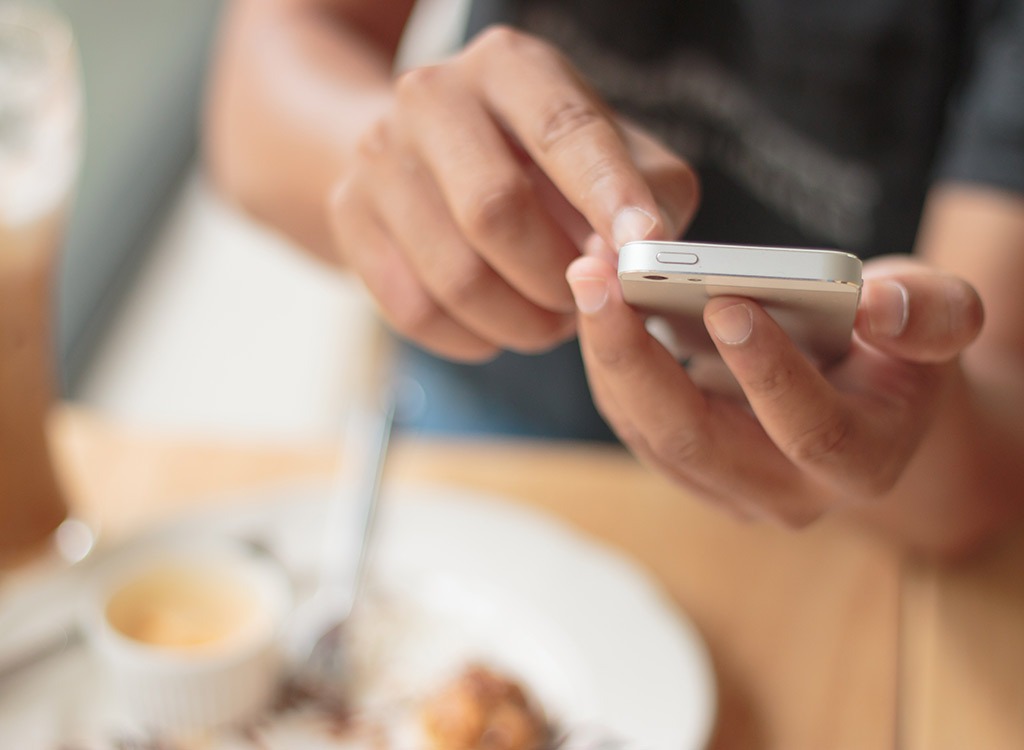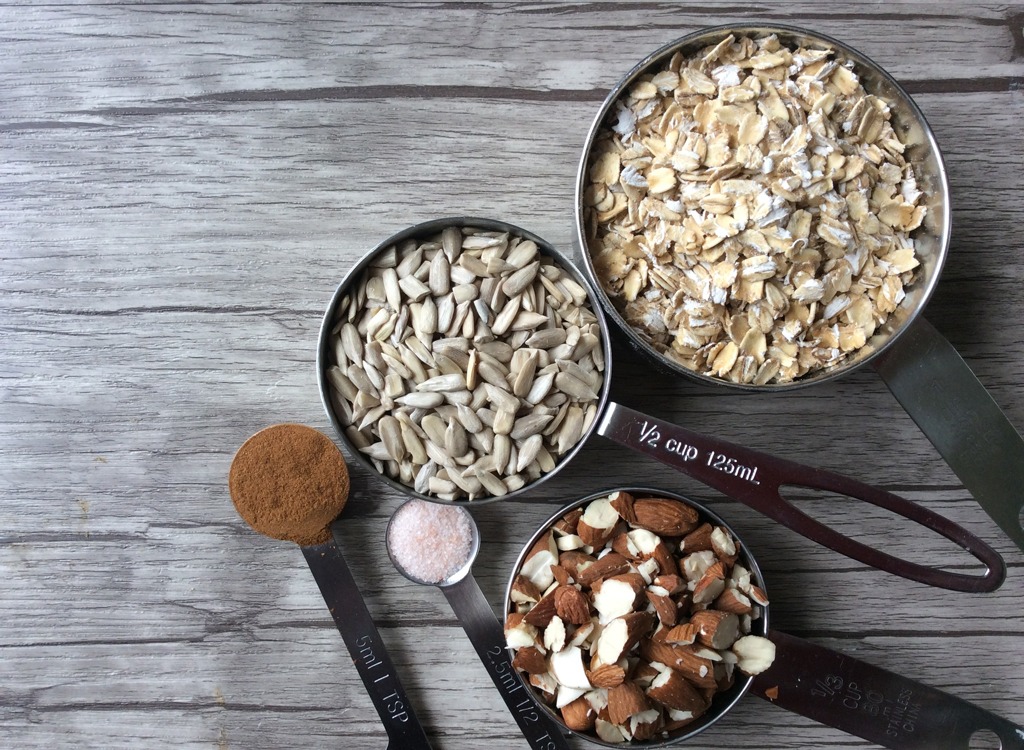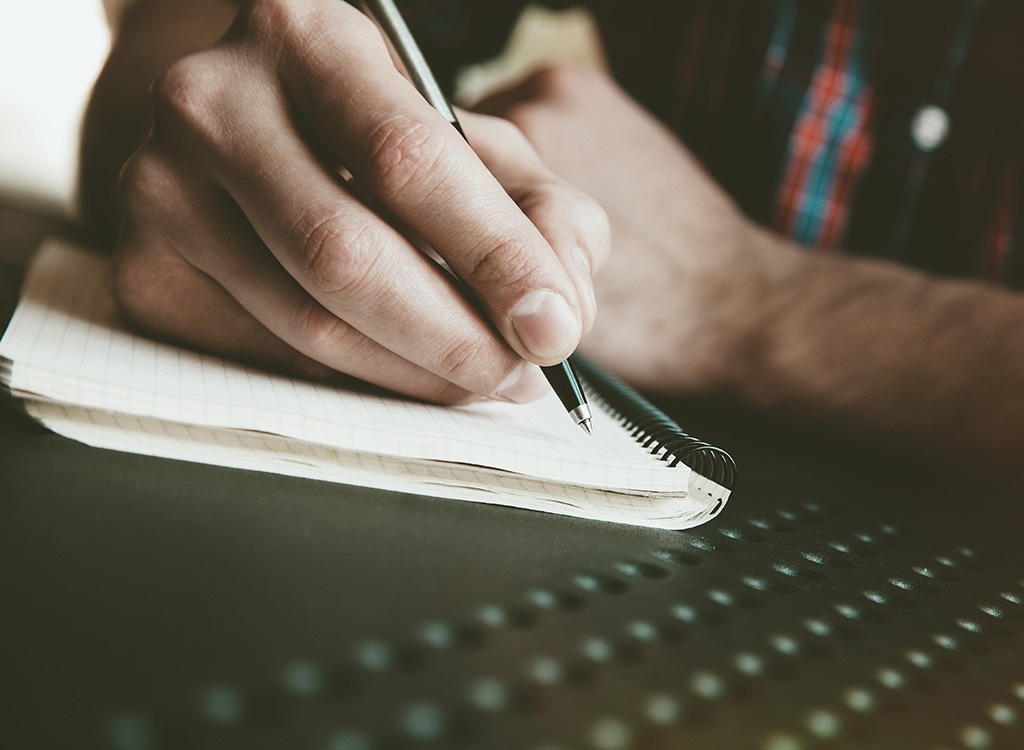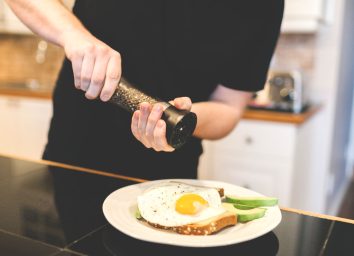10 Tips for Keeping a Food Journal for Weight Loss

Most people think of weight loss as a formula: healthy food + exercise = weight loss. So, why then, is the scale still not budging even though you’re doing everything right? It’s probably because the weight loss industry doesn’t teach us the secret ingredient that’s vital for a healthy life and healthy body: our minds. We often overeat not because our body is demanding it, but because our brain is. Stress, powerful emotions, and lack of sleep all lead us to dip our hand into the cookie jar or to order the burger instead of the salad. Simply put: being in tune with our mental state makes us more in tune with the rest of our body. But how exactly do you find out what’s going on up there to lose weight down below? Thankfully, there’s a super simple brain hack. It’s called a food journal and it’s time you get writing.
In 2008, the American Journal of Preventative Medicine found that among 1,700 individuals, those who journaled daily lost double the weight compared to non-journalers. And a 2012 study from the Journal of the Academy of Nutrition and Dietetics discovered that, out of 439 women, those who kept a food journal lost about 13 percent of their starting body weight compared to the 8 percent of those who did not journal.
The power of the food journal is that it keeps you accountable and makes you more aware. You are less likely to grab that piece of chocolate cake if you know you have to write down later and face the ultimate critic (AKA you). Plus, you become more aware of the emotions tied to your food or the habits you’ve fallen into. Perhaps you find that you crave fatty snacks around 4 p.m. When you sit down and ask yourself the simple question “why” in your journal, you realize that 4 p.m. is peak stress time at work. The following day, you come prepared with a healthy snack to munch on at 4 p.m.; maybe you even do yoga before work to prevent your stress.
Journaling is a scientifically-proven weight loss tool, but it can help you with so much more than just that. It can be used to track your step-by-step progress in fitness or your success at work. Whatever you use it for, there’s one downside to journaling: it’s downright hard. It’s burdensome to consistently write in a journal every day and difficult to face your emotions head on. But, trust us, just one short journal session a day can help you keep your word when it comes to weight loss. We’re giving you the tips you need to successfully put pen to paper and put your weight loss efforts on the fast track to success! For even more ideas on how to stay trim or lose the LBs, check out these 30 Weight Loss Tips Better Than Counting Calories!
Keep Your Journal on Your Nightstand…

Some people are creatures of habit and they do the same thing every day. Others go where the wind takes them. But there’s one thing that everyone does every single day: sleep. Keeping your journal next to your bed is a great daily reminder to write down what you ate that day. Bedtime is also your least distracted, least hectic time of day, which means you can’t make the “I’m too busy right now” excuse and can instead reflect on your habits. Oh, and before you hit the hay, whip up a healthy overnight oats recipe for the morning. You can proudly jot one of those down in your food journal tomorrow!
…or Write as You Go

If totaling up the day’s eats seems like an overwhelming task, try doing it step by step. Quickly writing down what you ate right after a meal or snack is a more manageable way of writing your food journal. Plus, writing it in the moment allows you to more accurately portray exactly what you ate and how you felt about it.
Make it Travel-friendly…

Whether you’re a minute-by-minute or before-bed journaler, make sure you get a notebook that’s portable. Having a journal that you can take to work or on vacation is essential since it allows you to stay consistent and prevents you from falling off the health wagon. If you buy a big, heavy journal, you might as well kiss your weight loss progress goodbye as this opens up a whole host of excuse possibilities. A compact, lightweight journal is just as easy to keep in your bag as a wallet! For more really simple weight loss ideas like this one, check out our list of 50 Best Weight Loss Tips.
…or Go Digital

These days, there are tons of apps out there dedicated to helping you track your weight loss progress. They function the same way as a food journal: they allow you to document exactly what you ate, when, and how much. A recent study out of Northwestern University found that those that tracked their eating on a mobile device were more likely to lose weight than those who did not. Not many of us carry a journal with us everywhere, but most of us have a smartphone glued to our pocket 24/7, making this the most convenient way to dive into food journaling.
For more smartphone-inspired weight loss, check out these 50 Best Chia Seed Recipes on Instagram.
Get the Picture

A recent study out of a nutrition clinic in Columbia found that those who take weekly pictures of themselves are more likely to lose weight than those who shy away from the lens. Get the picture? Taking selfies can help make you skinny! Try adding pictures of yourself to your diary or add them to your digital food log. They’ll serve as motivation and reward since you’ll literally be able to see the changes in your body!
Be Specific

Being specific is probably the most important aspect of keeping an effective weight loss journal. It’s easy to say “I had a sandwich for lunch,” but if you want to get the most out of your words, write down word for word what you ate that day. After all, a small, whole wheat sandwich is totally different than a meatball sub, but both could be considered “sandwiches.” When you’re writing, focus on portion size, time of day, environment, and how you felt before, during, and after eating. This will give you insight into your eating patterns in the long run and can help you make small interventions for a big change over time. And don’t forget to list what you drank that day! Drinking your calories is on our list of 50 Little Things Making You Fatter and Fatter.
Get Emotional

Part of being specific is being emotional. You don’t want to simply write about what you ate, you want to write about how it made you feel. If you notice that you reach for a bar of chocolate every time you fight with your husband because you feel sad and stressed, then perhaps next time you’ll be more likely to go for a run when things get tense. It’s not going to be a perfect science, but it will point you in the direction of healthy habits. For more healthy habits, try these 20 Weight Loss Tricks You Haven’t Tried.
Be Honest

You may feel guilty about the pizza you had today and you might not want to write about it, but that’s the point! Being totally honest in your writing allows you to notice your eating trends and pick up on your feelings around food so that you can take actual steps toward tangible change. A recent study from journal Appetite found that those who felt guilt around food were more likely to overeat and gain weight in the long run. Allowing yourself to fully address those feelings of guilt (or anxiety or sadness or whatever you’re feeling), could help you develop a better relationship with food over time. You will never reach your goals if you can’t face the facts. The pen can be mightier than the sword (and by sword, we mean fork)—but only if you let it!
Try a First Draft for Your Next Day

Once you’re in the habit of jotting down everything you’re eating and drinking, consider taking a moment at the end of the day to draft your next day’s munchies—minus the vices and other stuff you wish you weren’t writing down. So that you don’t get too confused with the order of things, put these drafts either on a new page of paper (that can be torn out if you want) or at the bottom of your current day. You may find that this small act of predicting and planning your meals will help you make even better, healthier choices!
Set a Date

We’re proposing a new kind of date night: a date with you and your journal. Logging your food every day is great and all, but it won’t actually do anything until you sit down and face the truth. Try to meet once a week with your journal and reread everything you have written. Notice patterns, notice emotions around food, notice cravings, and more. Try to find places where you can intervene to set yourself on track for weight loss success. Try these craving interventions to get started!








